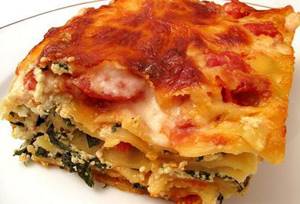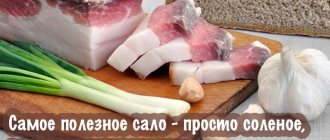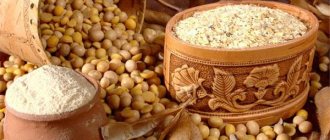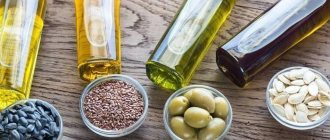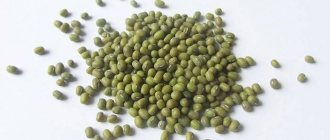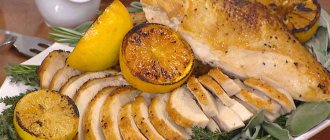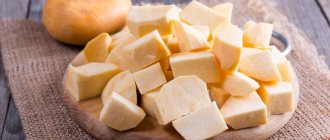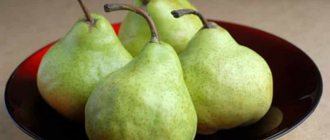Hello, dear friends! Today I will introduce you to one of the common types of vegetarianism in more detail. We will talk about lacto-vegetarianism as a nutrition system and lifestyle. Let's consider what it is, the possible benefits and harms of such nutrition, and what a lacto-vegetarian can eat.
So, lactovegetarianism is one of the popular types of vegetarianism, when the diet includes plant and dairy foods, and all other foods are excluded from the diet. That is, no meat, fish, animal seafood, eggs + products that contain any of these in their composition.
I’ll tell you right away about false foods that are not eaten with this food system:
- Anything that contains gelatin (made from the bones of livestock, so it is not vegetarian). For example, many dairy yoghurts and desserts contain it, even if it is not written about it on the label.
- Rennet cheeses (almost all hard cheeses) are made from calf stomach enzyme.
- All food additives of animal origin and products containing them.
Some people choose this food system for ethical, moral or religious reasons, others because of health. The reason may also be the recommendation of a doctor or nutritionist to follow such a diet. In any case, something always prompted a person to choose this particular type of vegetarianism and not another.
A fair question arises: “Why don’t lacto-vegetarians eat eggs?” Usually due to ethical reasons. Eggs contain an embryo (the embryo of a new life), and therefore eating eggs is killing the embryo of a future bird that could hatch from the egg.
By the way, Hindus even consider unfertilized eggs to be flesh and do not eat them. In India, 70% of vegetarians and most of them are lacto-vegetarians. This is not just food for them, but a philosophy of life. Such are the things.
What is lactovegetarianism
A lacto-vegetarian menu may include:
- Vegetables.
- All types of fruits.
- Seasonal and exotic berries.
- Cereals, cereals and grains.
- All types of nuts.
- Legumes - beans, mung beans, chickpeas, lentils, green beans, soybeans, cowpeas, etc.
- Mushrooms.
- Seaweed.
- Varieties of greens and salads.
- Dried fruits.
- Honey and bee products.
- Sugar and fructose.
- Vegetable oils of all types, regardless of whether refined and deodorized or extra virgin oil.
- Dairy and fermented milk products - milk, fermented baked milk, kefir, sour cream, yogurt, cottage cheese of various fat contents, butter, hard cheese, ice cream.
The above list shows that lacto-vegetarians are those who limit their menu to this set of food products.
But in order to fully understand what lacto-vegetarianism is, you need to pay attention to certain subtleties.
There is a group of dairy products that use rennet. It is a component of animal origin. In addition, some dairy products may contain gelatins. And this substance is an extract isolated from the bones of animals (more precisely, cattle).
It is precisely these dairy products that lacto-vegetarians should not include in their menu.
Therefore, a vegetarian needs to be completely sure that he is buying dairy products that do not contain gelatin and rennet. To do this, you need to carefully study the labels or buy dairy products produced at home - on farms.
Most often, components prohibited for lacto vegetarianism are found in dairy products such as yoghurts, curds, milk-based desserts, and some types of cheeses.
Lacto-ovo vegetarianism as the only correct nutritional system
It is difficult to argue with the fact that meat, poultry and fish contain substances that are important for maintaining human health: vitamins, minerals and fatty acids. However, the benefits of the listed products are significantly reduced due to their potential (and in most cases, real) harm: modern industry requires the widespread use of dangerous synthetic substances, including little-studied preservatives. In an effort to win the loyalty of consumers, Russian and foreign manufacturers stuff their products with flavor enhancers, dyes and even flavors (the latter are especially rich in semi-finished products, preserves, sausages and frankfurters). What should a buyer do who has a head on his shoulders and who does not agree to poison the body with useless and meaningless chemical additives? Not to mention that more than two thirds of these additives are carcinogenic.
Lacto-ovo vegetarianism, the menu of which includes the most ordinary products, seems to be the only true way out of this situation. Why spend money on practically inedible chemicals if you can limit yourself to a set of natural products rich in substances necessary for full life?
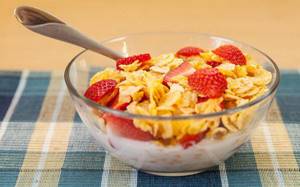
Pros and cons of lacto-vegetarianism
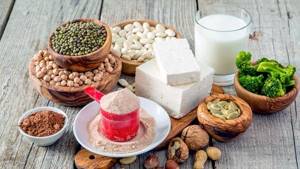
Pros:
- If you switch to this diet, you can easily lose extra pounds, since plant foods are low in fat and calories;
- The lacto-vegetarian menu includes plant fiber, which has a positive effect on the intestines and gastrointestinal microflora;
- Thanks to the abundance of fruits and vegetables in the diet, harmful toxins and wastes are removed from the body, and metabolic processes are normalized. Thus, according to statistics, lacto-vegetarians are less susceptible to cardiovascular diseases, hypertension, and diabetes;
- Plant foods contain a number of healthy carbohydrates that replenish the body with the necessary energy. As a result, there are many long-lived people among lacto-vegetarians;
- Dairy products allow you to diversify the menu.
- Fermented milk yoghurts, fermented baked milk, kefir, cottage cheese and sour cream provide a person with a group of bifidobacteria and lactobacilli, which have the most beneficial effect on the body. This group of microorganisms has a positive effect on the entire human digestive system, increasing its immunity and influencing many functions of the body.
- By consuming this food group, the body during lacto-vegetarianism can satisfy its need for vitamin B12.
Among the disadvantages of a vegetarian menu:
- The need to replenish vitamin B12 in some other way, for example, from dietary supplements or vitamin-mineral complexes. Since this vitamin is practically absent in plant foods.
- Difficulty in absorbing protein from vegetables, fruits, legumes and cereals. Meat makes it easier for the body to replenish its reserves of this substance.
- Lack of calcium and vitamin D3 leads to problems with bones and cartilage tissue. As a result, degenerative processes such as osteochondrosis, spondylolisthesis, osteoporosis and protrusion of intervertebral discs can develop.
- Also, due to a lack of omega-3, omega-6 and omega-9 polyunsaturated fatty acids in vegetable oil, abnormalities may develop in human organs and systems. For example, the heart and blood vessels will suffer, and cataracts and clouding of the lens of the eye may also develop in middle-aged and older people. Whereas in young children and adolescents, internal organs may not develop fully, including disruptions in the functioning of the brain. Since it is this structure in the body that consists mainly of fats. And this leads to various cognitive impairments, for example, memory impairment or a decrease in the ability to concentrate on performing certain actions.
- Excessive consumption of fiber, which is found in large quantities in plant foods, can lead to even poorer absorption of protein, which is already lacking in a vegan diet.
- If a person suffers from asthenic syndrome, he should not adhere to such a diet. Also, such a menu is contraindicated for those who are recovering from complex surgical interventions or the body is weakened by diseases, both chronic and acute.
- Most doctors agree that the diet should not be used by pregnant women, children and those planning to have a child. Because this can have the most negative consequences.
What does the menu consist of?
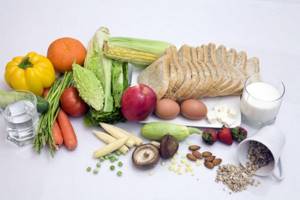
The main list of product groups has already been indicated. If we consider in detail the menu of a lacto-vegetarian, then it should include daily:
- In the first half of the day, and specifically during breakfast, it is better to consume a group of dairy products. The protein included in them will be absorbed by the body and contribute to the development of muscle structures, as well as tissues of all internal organs. This is especially true for young and developing organisms. It is also worth including butter, for example in the form of a traditional sandwich. Do not forget to include such animal fat in your menu as often as possible. An excellent option for breakfast would be berries or cereal flakes, flavored with a cup of milk or yogurt.
- For lunch, it is advisable to eat a variety of plant foods with a more “difficult” form of absorption. These heavyweights include beans and all types of legumes, as well as mushrooms. For example, borscht with beans and mushrooms will complement and diversify the diet.
- In the evening, you can allow yourself, again, a glass of fermented milk product. For example, in the form of kefir consumed before bed. In this case, entering the intestinal tract, bifidobacteria and lactobacilli from fermented milk products help normalize digestion processes and restore immunity, since it directly depends on the microflora of the stomach and intestines.
- It is necessary to pay attention to the fact that if lacto-vegetarianism is started with the goal of getting rid of extra pounds, then it is necessary to introduce sweet fruits (containing glucose) exclusively in the first half of the day. Because otherwise, excess light carbohydrates in the form of sugar will be quickly absorbed into the blood and transferred to fat deposits.
If you want to become a vegetarian, you need to very carefully apply this menu for the week at the very beginning. You should gradually exclude animal products from your diet and under no circumstances do this abruptly. Since this will be stressful for the body of novice vegetarians.
Day 1: start of the journey
- Breakfast: 2 boiled eggs or omelet, whole grain toast with a tablespoon of butter.
- Lunch: a large plate of vegetable salad, natural yogurt with fresh fruit.
- Dinner: vegetable stew with cashews, carrot or tomato juice.
- Snacks: Raw nuts, preferably almonds or mixed nuts.
Drink as much plain still water as possible.
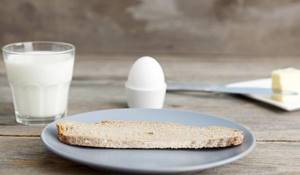
Consequences of switching to lacto-vegetarianism
According to WHO, the number of vegetarians in the world is rapidly growing. Everyone, for their own reasons, comes to give up meat. Standard medicine has a controversial attitude to this issue, but many experts are inclined to believe that some areas of vegetarianism have significant benefits for human health and improving their well-being.
Thus, the most popular vegetarianism in a positive sense among doctors is considered to be lacto-vegetarianism and ovolacto-vegetarianism.
There are no strict contraindications to lacto-vegetarian nutrition. But there are 3 exceptions:
- allergy to milk protein;
- severe iron deficiency anemia;
- children under 10 years of age living in northern regions, since due to climate conditions they may have a greater need for animal protein.
There are also direct indications for lactovegetarianism. First of all, this is hypercholesterolemia - an increase in the level of free cholesterol in the blood. It has been proven that by giving up meat and switching to low-fat and low-fat dairy products, blood cholesterol levels normalize without any additional treatment within 40 days.
In general, any adult who does not have problems with hemoglobin can safely switch to a lacto-vegetarian menu.
But please note that if you completely deprive yourself of animal proteins, including dairy products, this will have a more severe impact on your health than the lacto-vegetarian option.
conclusions
It is necessary to note that eating only products of dairy and plant origin can have a positive effect on a person’s general well-being and health. This diet can relieve health problems such as atherosclerosis and arthritis, osteoporosis, type 2 diabetes, stones deposited in the urinary and gall bladders, as well as some types of cancer.
But it is important to remember that the menu must be carefully thought out so that the human body receives all the necessary micro- and macroelements, as well as biological active substances.
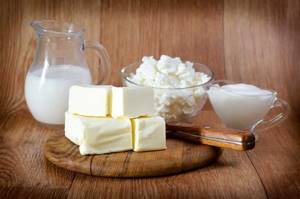
Day 5: mouth-watering dishes
- Breakfast: muffins with pieces of dried fruit, protein shake.
- Lunch: baked beans, fresh carrots, celery, fruit salad.
- Dinner: tempeh and vegetable stew with brown rice, tomato juice.
- Snacks: a serving of whole grain cereal with milk, natural yogurt with fresh fruit.
When choosing cereals, oatmeal remains the ideal option. Coarsely ground wheat flakes also promote good digestion and a great mood.
